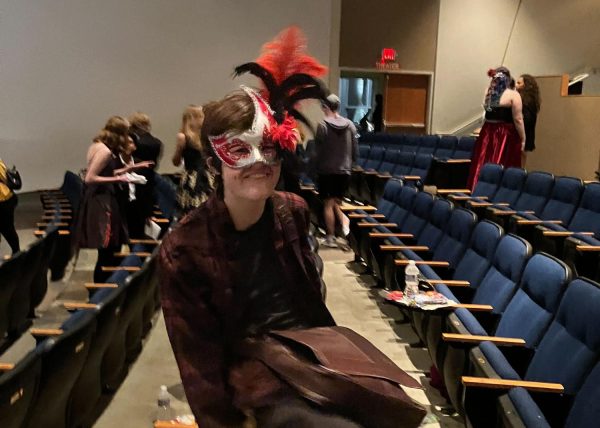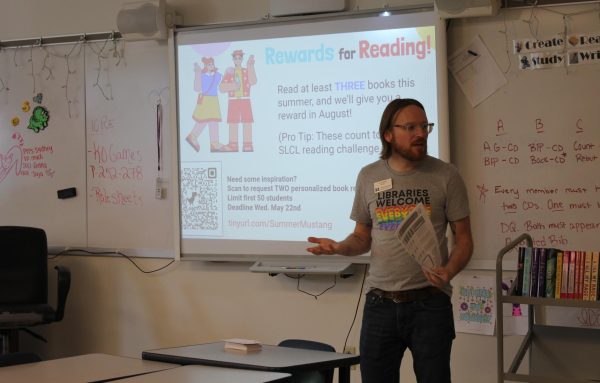Claire’s Catalog: Phoebe Bridgers
Media by Claire Lowder
28-year-old California native Phoebe Bridgers has released two solo albums among various singles since 2015 with 8.7 million monthly listeners on Spotify. Album covers from Dead Oceans.
Emotional clarity, angstful existential dread and bittersweet but somehow energizing performances are just three things indie folk rock artist Phoebe Bridgers is a master of.
The California native truly is a product of the times. With only two solo albums under her belt, the 28-year-old musician has already become one of the most influential and well-known alternative artists of our generation, with tracks that may seem serene and peaceful, yet are anything but.
As with most musicians, Bridgers’ lyrics are mainly comprised with her own emotions: stomach-churning love, all-consuming dread and poignant, unique nostalgia. But it’s her lyrical themes, delivery and melancholic vocals that set her apart from other alternative artists.
Simply put, Bridgers’ music aids in processing persistent and impassioned sadness: “I know it’s for the better,” she repeats over and over again in her song “Waiting Room.”
Her first album, “Stranger in the Alps,” released in 2017, elicits a strong sense of reminiscence for its listeners. This album’s tracks are more refined and concentrated, with a nod to deeper realizations throughout the album. Overall, “Stranger in the Alps” proves to be the more sorrowful, slower and folk-oriented project of Bridgers’ discography.
The album’s second track, “Motion Sickness,” is arguably Bridgers’ most defining and well-known song, written about her emotionally abusive ex-boyfriend and producer of her debut EP, “Killer.”
“I hate you for what you did / but I miss you like a little kid,” Bridgers renders over a simple but effective synthesized guitar and drum beat. “There are no words in the English language / I could scream to drown you out.”
Other popular tracks include “Smoke Signals,” “Scott Street” and “Georgia,” all of which are lyrically profound and carefully written.
A reason why Bridgers’ music is so appealing is the protagonist’s common struggle with the mundane aspects of life — something not only the younger generation, but the population as a whole can relate to. Bridgers is exhausted of small talk, sweet nothings and being generally disinterested in her own narrative.
She is bored with life as she knows it, and this concern is carried into her second album, Punisher, released in 2020.
In “Kyoto,” Punisher’s third track, the subject of the song finds herself unintentionally bored while visiting a Japanese temple, and becomes reclusively disinterested in the entire trip as a whole. Bridgers has said the song also plays into her emotionally taxing battle with imposter syndrome.
“[I’m] feeling like I’m living someone else’s life,” Bridgers said in an interview with Genius. “It can feel like I’m performing what I think I’m supposed to be like.”
Awarded Best Alternative Rock Album in 2021 at the Grammy’s, Bridgers’ second album is a metaphorical road trip that focuses on topics such as dissociation and broken relationships, whether they be romantic, platonic or blood-related.
The lyrics in this album are just as profound as ones from her previous projects: “Always surprised by what I do for love / Some things I never expect,” from the albums retrospective track “Halloween”, “And if I could give you the moon / I would give you the moon,” from “Moon Song”, and “She knows she lived through it to get to this moment,” from “Graceland Too.”
Bridgers tackles subjective and personal dilemmas, such as the fear of dying — or lack thereof — something that isn’t too common in recent music, specifically modern pop (for understandable reasons). Her music is emotionally heavy, evoking feelings, thoughts and revelations that aren’t easily understood on a day-to-day basis.
“I have never wanted to be a character, and I have never wanted to hide stuff about myself. I want to normalize personhood,” said Bridgers in an interview with Rolling Stone. “Songs are like therapy to me: I’m just like a normal person, going to therapy.”
Objectively, her most unique and possibly influential song, the last track of Punisher, “I Know The End,” details and reflects upon the apocalyptic world Bridgers believes we live in. The beginning of the song is calm and quiet while Bridgers vocalizes her disdain for where she is physically and mentally in her life: “Romanticize a quiet life / There’s no place like my room.” The song picks up with the lyrics “Driving out into the sun / Let the ultraviolet cover me up,” and later, “The billboard said, ‘The end is near’ / I turned around, there was nothing there / Yeah, I guess the end is here,” accompanied by raging instrumentals.
The Elliot Smith-inspired artist continues to write and produce, recently releasing “the record,” an EP written and performed by her supergroup Boygenius with Julien Baker and Lucy Dacus on Jan. 18. I strongly encourage anyone interested to “surrender to the sound” of Phoebe Bridgers, as her song “Motion Sickness” suggests, as she continues to inspire and provide a sense of relief to listeners across the world.
Your donation will support the student journalists of Marquette High School. Your contribution will allow us to purchase equipment and cover our annual website hosting costs. You may become a PATRON by making a donation at one of these levels: White/$30, Green/$50, Blue/$100. Patron names will be published in the print newsmagazine, on the website and once per quarter on our social media accounts.

Claire Lowder, senior, is the Opinions Editor for the Messenger. This will be her second year on staff. Outside of writing, she enjoys shopping, reading,...













Jose • Mar 17, 2023 at 1:18 AM
I love this piece!
Parker Brandt • Feb 23, 2023 at 12:01 PM
literally brought me to tears.
Mary Ann Ogle Pirrello • Feb 22, 2023 at 12:16 PM
I love this, very interesting and engaging. You are very talented. So proud of you!